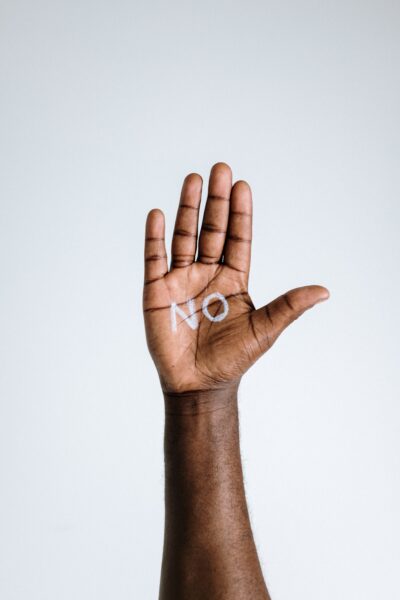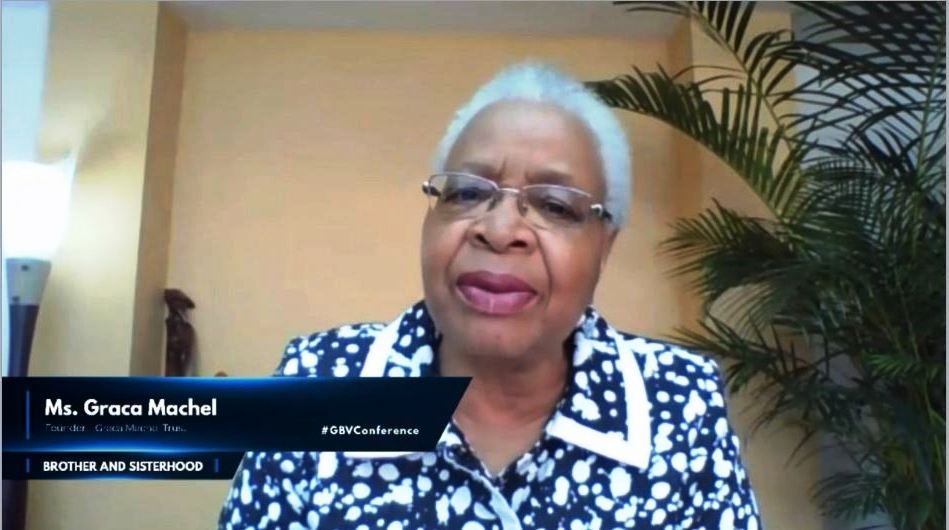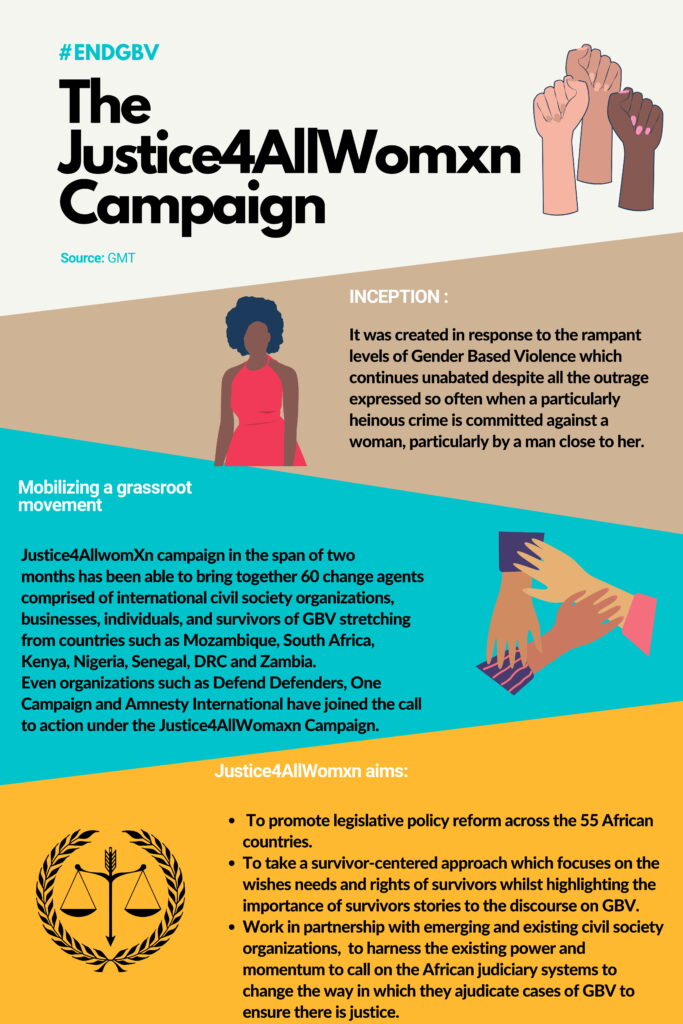
Photo by cottonbro from Pexels
Gender-based violence (GBV) is a public health issue that affects all members of society, but more significantly women and girls. GBV includes physical, sexual, verbal, emotional, psychological abuse and economic or educational deprivation. The COVID-19 pandemic has seen a lot of women and children worldwide at a higher risk of GBV, long-term effects of these including physical injuries, sexual and reproductive health issues, mental health disorders, impacts on the health and well-being of children. These consequences eventually hurt a country’s human, social, and economic development.
Unfortunately, GBV goes unnoticed and unreported and in some societies, an accepted norm; with research indicating that violence against women and girls occurs within families and the perpetrators are almost exclusively men familiar to the victims. Currently, only 22 countries in Africa have laws that criminalize GBV. According to the United Nations High Commissioner for Refugees (UNHCR) several factors such as poverty, lack of education and livelihood opportunities, and impunity for crime and abuse, also tend to contribute to and reinforce a culture of violence and discrimination based on gender.

Mrs. Graça Machel recently recognised the continuous struggle women face with justice systems in the resolution of their cases; and the inconsistencies of the interpretation and application of the law. Speaking during the recent MultiChoice the Brotherhood and Sisterhood GBV virtual conference on September 11, Mrs. Machel cited her own daughter’s experience as an example, she shared, “My own daughter, Josina,was brutally assaulted by her then partner of which the injuries she sustained resulted in the loss of her right eye.The perpetrator was found guilty by the Mozambican High Court in February 2017 but on the 12th of June 2020, the Appeals Court overturned the decision citing that there were no eyewitnesses to the crime which is a common characteristic of these types of crimes.”
On possible solutions on how to tackle GBV, she said, “We need to change all of these social norms that we lived with and we thought they were ok, but they have gotten us into the situation that we are. It is the right time to investigate, interrogate, to reform and change radically, the socialization of boys and girls in our families, in our schools, in our churches and [all of society].”
Ms Machel also urged the public to look at GBV survivors as agents of change. “When they tell their stories and they sensitize us to be intolerable to this [GBV]. I am so proud that my daughter is one of those who started this justice for all women (Justic4AllWomxn) and we are hoping that this is going to enacted in many other African countries; this swelling movement of the unacceptability of gender-based violence. I applaud her strength and all the ladies out there. The strength and the commitment they have that yes, it happened to me but it shouldn’t happen to many other young women and that is why the movement has to spread and has to be powerful.”

You too can be part of the call to action. Start taking action by demanding accountability from the institutions and systems made to protect us by going to the Justice4AllwomXn website (www.justice4allwomxn.org ) and demanding justice through the adoption of a survivor-centred approach from our heads of states and regional bodies.
“We must protect each other, be kind to one another. Play an active role in changing our social fabric to respect and give dignity to every woman and girl in our lifetime and bring an end to the senseless act of gender-based violence,” Mrs Machel said in closing.










 The Trust supports and mobilises civil society networks on issues of ending child marriage, ending violence against children, ending female genital mutilation and promoting children’s rights, to carry out advocacy and action across Africa. Special focus is placed on Malawi, Mozambique, Tanzania and Zambia where child marriage continues to be a problem largely driven by poverty, gender inequality, harmful traditional practices, conflict, low levels of literacy, limited opportunities for girls and weak or non-existent protective and preventive legal frameworks.
The Trust supports and mobilises civil society networks on issues of ending child marriage, ending violence against children, ending female genital mutilation and promoting children’s rights, to carry out advocacy and action across Africa. Special focus is placed on Malawi, Mozambique, Tanzania and Zambia where child marriage continues to be a problem largely driven by poverty, gender inequality, harmful traditional practices, conflict, low levels of literacy, limited opportunities for girls and weak or non-existent protective and preventive legal frameworks.




 Education is a fundamental right for all children, which is also a vehicle for social, economic and political transformation in communities, countries and the African continent at large. Recent studies indicate a lack of progress in some of the critical commitments aimed at improving education quality, access, retention and achievement, particularly for girls. In most African countries, girls may face barriers to learning, especially when they reach post-primary levels of education. By implementing multi-dimensional approaches to education which includes core education, personal development, life skills and economic competencies, the Trust partners with funding partners, governments, civil societies and the private sector to improve education access.
Education is a fundamental right for all children, which is also a vehicle for social, economic and political transformation in communities, countries and the African continent at large. Recent studies indicate a lack of progress in some of the critical commitments aimed at improving education quality, access, retention and achievement, particularly for girls. In most African countries, girls may face barriers to learning, especially when they reach post-primary levels of education. By implementing multi-dimensional approaches to education which includes core education, personal development, life skills and economic competencies, the Trust partners with funding partners, governments, civil societies and the private sector to improve education access.

 The Nutrition and Reproductive, Maternal, New-born, Child and Adolescent Health and Nutrition, (RMNCAH+N) of the Children’s Rights and Development Programme aims at promoting the Global Strategy for women, children and adolescents’ health within the Sustainable Development Goals (SDG) agenda. The strategy emphasises on the importance of effective country leadership as a common factor across countries making progress in improving the health of women, children and adolescents.
The Nutrition and Reproductive, Maternal, New-born, Child and Adolescent Health and Nutrition, (RMNCAH+N) of the Children’s Rights and Development Programme aims at promoting the Global Strategy for women, children and adolescents’ health within the Sustainable Development Goals (SDG) agenda. The strategy emphasises on the importance of effective country leadership as a common factor across countries making progress in improving the health of women, children and adolescents. Through its Early Childhood Development (ECD) plan, The Trust will seek to put into action the new science and evidence Report that was presented by Lancet Series on Good and early development – the right of every child. This will be achieved by mobilising like-minded partners to contribute in the new science and evidence to reach all young children with ECD. The Trust’s goal is to be a catalyst for doing things differently, in particular, to rid fragmentation and lack of coordination across ECD sectors. In response to evidence showing the importance of political will in turning the tide against the current poor access and quality of ECD. Even before conception, starting with a mother’s health and social economic conditions, the early years of a child’s life form a fundamental foundation that determines whether a child will survive and thrive optimally.
Through its Early Childhood Development (ECD) plan, The Trust will seek to put into action the new science and evidence Report that was presented by Lancet Series on Good and early development – the right of every child. This will be achieved by mobilising like-minded partners to contribute in the new science and evidence to reach all young children with ECD. The Trust’s goal is to be a catalyst for doing things differently, in particular, to rid fragmentation and lack of coordination across ECD sectors. In response to evidence showing the importance of political will in turning the tide against the current poor access and quality of ECD. Even before conception, starting with a mother’s health and social economic conditions, the early years of a child’s life form a fundamental foundation that determines whether a child will survive and thrive optimally.